
Title: Nightmare Fuel: The Science of Horror Films
Author: Nina Nesseth
Genre: Adult, nonfiction, horror, science
Publication date: July 26th 2022
Published by: Tor Nightfire
Source: eARC from publisher via Netgalley
Add it on Goodreads
Buy it: Amazon | Book Depository
Synopsis: Do you like scary movies?
Have you ever wondered why?
Nina Nesseth knows what scares you. She also knows why.In Nightmare Fuel, Nesseth explores the strange and often unexpected science of fear through the lenses of psychology and physiology. How do horror films get under our skin? What about them keeps us up at night, even days later? And why do we keep coming back for more?Horror films promise an experience: fear. From monsters that hide in plain sight to tension-building scores, every aspect of a horror film is crafted to make your skin crawl. But how exactly do filmmakers pull this off? The truth is, there’s more to it than just loud noises and creepy images.With the affection of a true horror fan and the critical analysis of a scientist, Nesseth explains how audiences engage horror with both their brains and bodies, and teases apart the elements that make horror films tick. Nightmare Fuel covers everything from jump scares to creature features, serial killers to the undead, and the fears that stick around to those that fade over time.With in-depth discussions and spotlight features of some of horror’s most popular films—from classics like The Exorcist to modern hits like Hereditary—and interviews with directors, film editors, composers, and horror academics, Nightmare Fuel is a deep dive into the science of fear, a celebration of the genre, and a survival guide for going to bed after the credits roll.
I was SO excited when I came across this book because it combines two of my favorite things: horror movies and science!
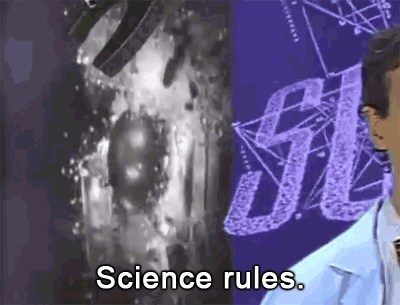
As the title suggests, this book goes into the science behind horror movies, why we like them, why our bodies react the way they do, that sort of stuff. And I just found all of that so interesting! I mean, why do we come back for more horror instead of staying away from these terrible scenarios? The book pointed out one thing: when recognizing a scary situation in a horror movie, the buildup of your own anticipation for that situation is half the fun—and that is SO true! That is one of my favorite things about watching horror movies—just waiting for the spooky thing to happen 😆 AND recent research has shown that oxytocin (the “love” hormone) can be released during stressful situations... including horror movies! That I did not know!

And I actually learned a lot about myself and my relationship to horror from reading this book. One thing about me is that even though I love all things horror, I actually startle really easily. It’s embarrassing! 😂 But I also have anxiety, and apparently that makes me more sensitive to spooky things and thus I have a bigger startle response. Yay anxiety 🙃 Lol. However, they say that people with anxiety disorders have a harder time distancing themselves from the horror in movies, but I find that I don’t have that problem. I’ve never had an issue distancing myself from the fictional horror of movies. I can literally fall asleep to a horror movie and not have a nightmare 😆 Lol.
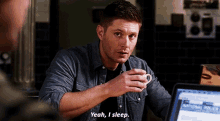
But just because I love horror and can handle a bit of violence and gore, it’s not the same with real-life stuff, which this book talks about a little. I’ve read one true crime book, and at the moment of writing this review I’m reading another, but while reading these types of books I am so acutely aware that this terrible violence happened in real life, that I could obviously not take it as lightly as I do movies/fictional books. In fact, it took me MONTHS to read that first true crime book (even though I loved it). The media loves to blame horror movies for terrible acts of violence that happen in real life, saying that these types of movies desensitize the people committing these awful crimes. But no. I've watched so much horror that I might be a little desensitized when watching other horror movies, but never when it comes to violence that happens in the real world.
The book also talks about the brain in relation to horror movies, like how the amygdala is generally accepted as the primary brain center for fear processing, and just what goes on in the brain when fear is triggered. I liked the way the book talked about what happens to your brain as you go through these frightening scenarios, from potential threat to actual threat, what hormones are released and how your body reacts. AND they used movies as examples! I loved that! I also learned that there are more responses than just flight or fight! There are in fact MANY Fs! Lol. It was so interesting!
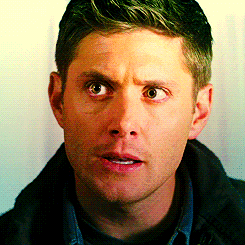
Another thing I found interesting was that loving horror COULD be in the genes! I have no idea how, as neither of my parents like it 😆 My dad loves his Hallmark Christmas movies, meanwhile I’m over here like, “Ew! Get them away from me!” 😂 I have three brothers and only ONE is a horror fan too! So in my case, it’s definitely not hereditary, but it is contagious. Lol. I’m honestly not sure where exactly my love for it came from... I mean, I used to watch things like Goosebumps and I remember once Child's Play was on tv and it scared the ever-loving crap out of me and made me hate dolls 😆
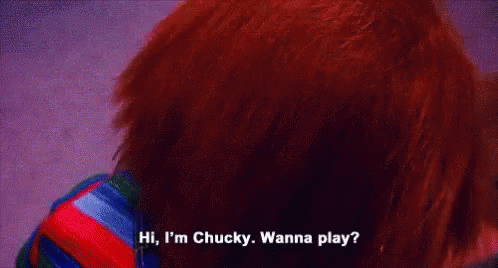
Ironically, it's one of my favorite movies now! Lol. One experience I remember vividly is when my twin brothers were born. It was MLK day and my younger brother and I were staying with an aunt while the twins were being, well, birthed 😆 Me, my brother, and our cousins (I was 12, my brother 6, one of my cousins maybe 10 or so, and my other was also 6) were watching The Ring, and the scene where Samara came out of the TV scared us SO badly, we literally ran down the stairs 😂 That being said, we apparently found it fun because we came back to finish the movie 😂
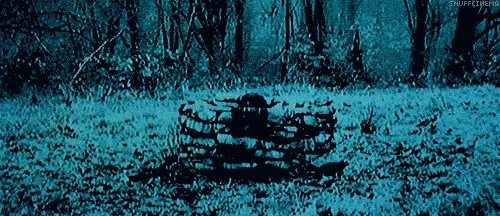
This book talked about so many interesting things that I could not possibly touch on them all... I feel like I’ve already rambled on long enough 😆 But two more things I wanted to note before I wrap things up, is that if you take a look at horror movies throughout history, horror movies made during certain time periods actually correlate with what's going on in the real world and what scared us during those times. And that maybe watching and enjoying horror movies could be... almost a coping mechanism/a way to deal with our own terrible in-real-life issues. For example, during the pandemic, I watched All of Us Are Dead, which is a Korean zombie show (which I highly recommend! It is SO good!) where the characters had to deal with an even worse virus than we have now. It’s almost like a release for the things you’ve been feeling.
Oh man, that is one long-winded review 😅 But I really enjoyed this book! I love how all the science was explained and then horror movies were used as examples or spotlit in relation to whatever topic was being discussed. It was just a fascinating read! Although I will admit, my eyes glazed over in certain parts 🙈 Usually when they talked about movie production. I guess I just don't care about that 🤷♀️ But give me ALL the science! 😆 But I definitely recommend this book if you’re a fan of horror! And even if you’re not, I think you might find it interesting as well!


No comments:
Post a Comment